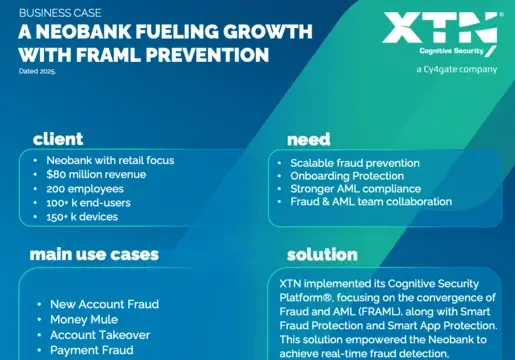
Over 60% of surveyed IT decision-makers consider the increase of AI as an area of concern CIOs blinkered to impact of AI on cyber security
London, 12th Oct, 2023 – Integrity360, one of the leading pan-European cyber security specialists, announced findings from independent research into AI's impact on cyber security, the risks, and advantages. The survey of 205 IT security decision makers was conducted between 9th-14th August 2023, and highlights mounting concerns over the use of AI, and deepfakes in particular, as 68%[1] of respondents noted concerns about cybercriminals using deepfakes to target their organisations.
Brian Martin, Head of Product Development, Innovation and Strategy at Integrity360 commented - "The use of AI for cyber-attacks is already a threat to businesses, but recognising the future potential and the impact this can have, is just the start. We’ve already seen the potential for deepfake technology with the video of Volodymyr Zelensky telling Ukrainians to put down their weapons and spreading disinformation. This is just one example of the nefarious means in which it can be used, and businesses need to be prepared for how to defend against this and discern what is and isn’t real, to avoid falling victim to an attack.”
A significant majority (59%1) of respondents also agree that AI is increasing the number of cyber security attacks, which aligns with the change in attacks that have been noticeable over the past year as ‘offensive AI’ is being used in instances such as malware creation. It’s also being used to create more phishing messages with content that accurately mimics the language, tone, and design of legitimate emails.
In line with this, the survey also indicates that businesses recognise the impact that AI will have on cyber security as 46%[2] of respondents disagreed with the statement that they do not understand the impact of AI on cyber security.
However, when breaking down the findings by specific job roles, the survey suggests that CIOs appear to have the least understanding of AI's impact on cyber security, with 42%2 indicating disagreement with the statement. This highlights a potential gap in knowledge among c-level executives, which may have implications for organisations' cyber security strategies and the importance of educational efforts to ensure they are well-informed about the role of AI in cyber security.
Further to this, 61%1 of respondents expressed apprehension over the increase in AI, indicating that this is an area of concern within the industry.
“AI's role in cyber security is not only a matter of perception but a tangible reality. Conventional cyberattacks will ultimately become obsolete as AI technologies become increasingly available and more appealing and accessible as attackers look to expand their use for AI-enabled cyberattacks. As an MSSP it’s essential to ensure businesses are considering how this can be used against them and putting processes in place to protect against these growing threats”, commented Martin.
Despite concerns, a substantial majority of respondents (73%1) agree that AI is becoming an increasingly important tool for security operations and incident response. This reflects the industry's growing recognition of AI's potential to enhance security practices and the perception that AI can be used both defensively and offensively in cyber security.
Furthermore, 71%1 of respondents agree that AI is improving the speed and accuracy of incident response. Likely due to AI's ability to analyse vast amounts of data and identify threats in real-time, contributing to its effectiveness in incident response.
More than two-thirds (67%) of respondents also believe that using AI improves the efficiency of cyber security operations. AI can automate routine tasks, allowing cyber security professionals to focus on more complex and strategic aspects of their work.
“As AI technologies continue to evolve, their integration into cyber security will follow. Organisations must remain proactive in embracing AI while also addressing the challenges it presents, ensuring that their cyber security defenses keep pace,” added Martin.















Comments ( 0 )